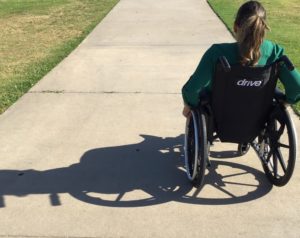One of the big differences between a personal injury case and workers’ compensation case is that with a workers’ compensation case, you do not have to prove fault. In a personal injury case, you will bear the burden of proving who was at fault for your injury.
Another difference between these two types of cases is the litigation process itself. A disputed workers’ compensation case will be tried before a Deputy Commissioner at the Virginia Workers’ Compensation Commission. A workers’ compensation claim is filed against the employer and its workers’ compensation insurance company. A personal injury case will be filed in either general district court or circuit court against the person who caused the injury. A general district court case is heard by a judge while a circuit court case may be heard by either a judge or jury.

The workers’ compensation litigation process is also much quicker than that of a personal injury case. Once a claim is filed with the Virginia Workers’ Compensation Commission, the case will normally be set for a hearing within 3-4 months. A personal injury case can take up to a year or more before it goes to trial.
The damages recoverable by these two types of cases are also different. In a personal injury case you can recover for intangible things such as pain, suffering and inconvenience. With a workers’ compensation case, the insurance company is only responsible for the payment of tangible losses, such as disability from work and your medical bills.
Sometimes workers’ compensation accidents also give rise to a personal injury case. An example of this would be if you’re driving a company truck for work, then fall victim to an auto accident caused by the negligence of another driver. In these types of situations, you can pursue both a workers’ compensation claim and a personal injury case. It is important to remember however, that the workers’ compensation insurance company will have a lien against any recovery you receive in your personal injury case. What this means is that the insurance company can recover what it has paid out to you in workers’ compensation benefits from your personal injury recovery. This is designed to prevent a person from receiving a double recovery for the same accident.
Whether you been hurt on the job or through the negligence of a third-party, call the experienced attorneys at Allen and Allen. We are here to help.



